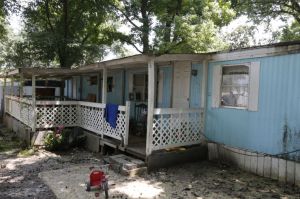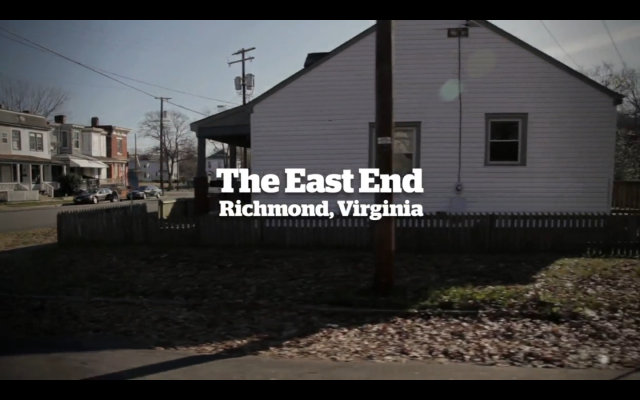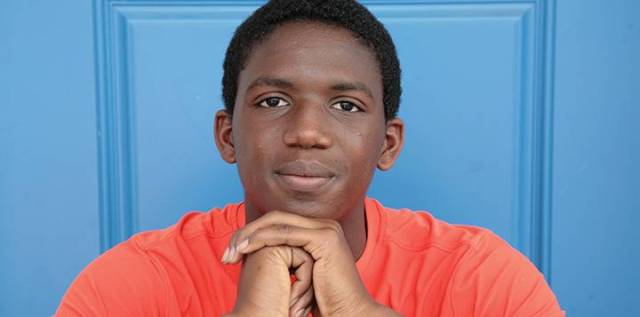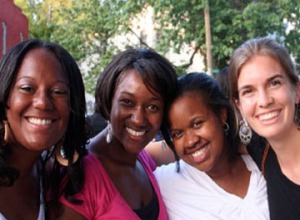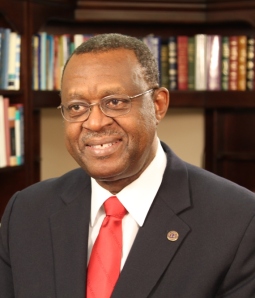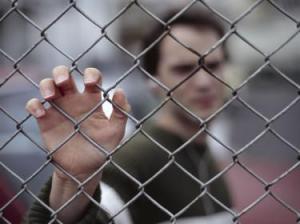 Here’s a guest blog from Michael Gerace, who is interning at Richmond’s First Baptist Church this spring as a prison minister. I hope you will read it and remember the many who are incarcerated in the Richmond City Jail, as well as the multiple prisons in the Central Virginia region. Michael’s post will give you a better understanding of what those prisoners are dealing with.
Here’s a guest blog from Michael Gerace, who is interning at Richmond’s First Baptist Church this spring as a prison minister. I hope you will read it and remember the many who are incarcerated in the Richmond City Jail, as well as the multiple prisons in the Central Virginia region. Michael’s post will give you a better understanding of what those prisoners are dealing with.
————————————————
“I was in prison, and you visited me.”
When I first started to minister to the incarcerated I was aware of Matthew 25: 37 (above) and 44-45 (below) which says:
‘Lord, when did we see you hungry or thirsty or a stranger or needing clothes or sick or in prison, and did not help you?’ “He will reply, ‘Truly I tell you, whatever you did not do for one of the least of these, you did not do for me.’
This verse was a confirmation of some internal and external prompting I was receiving about prison ministry, but I had questions. For the first six months I worked almost exclusively in the high security tier or what is called “the hole” or solitary confinement. I had contact with inmates serving time for many types of crimes including the biggies like murder, rape, and child molestation. In those early days I wondered if God was really in a prison and if so how do I find him. I wondered if God was working there and if so who was he working in and how? I also wondered if I was really being invited by God to help Him with His work in the jail and if so what should I do.? After nearly three years of jail and prison Chaplaincy, I can report that I now truly believe the following: God is everywhere including in a prison; God gives me one inmate at a time to work with and I leave the rest to Him; God wants me help Him in prison by being who I really am (in Christ) and help guide others to do the same. The following is an account of one such attempt at carrying out my ministry.
The conversation below was part of a second counseling session with a middle aged Caucasian male inmate named John. John is a clean, bright, articulate, and executive looking type who has a heroin addiction. He has been in and out of rehab and has done work in and for a Christian outreach in drug rehabilitation ministry. He has attended a well-known Christian University and is very bible literate. In the last session we established that John was suffering from anxiety and depression and claims he was diagnosed with bipolar disorder. He has a supportive significant other and a four month old baby and feels that he blew a great opportunity to live a sober life with a woman and child he loves.
It was our second session together, and his countenance was one of tenseness and anxiety. Before we began, I tried to relax with the intention of mirroring calmness to him. I did this by pulling my chair closer to the table and assuming a relaxed posture while leaning back in my chair. He assumed a position opposite me leaning forward towards the table. At first we looked directly at each other as the conversation (which was part of the session) began.
C. John, how are you? Good to see you again.
J. (Put’s his head down) I just finished a visit with Connie and she brought the baby. (He looks up and hands me over pictures of the baby, and puts his head back down.
C. She’s beautiful.
J. I feel like such a piece of s—.
C. Really?
J. I am a lowlife and worthless.
C. John, I hear you judging yourself. Tell me more about your feelings.
J. I am ashamed, I feel guilty for what I have done.
C. Are you sad?
J. I am depressed and hate myself.
C. John, I can see why you feel that way, you have suffered great loss and are grieving.
J. Yeah my job, my life with Connie, my life with Cayla, my family, my ministry, my hobbies, my life!
C. Wow. (Pause) That is an incredible amount of loss for man.
J. Yes, and I have myself to blame (Starts to weep, and then is sobbing).
C. John what did we talk about last week? What do you remember?
J. (Stops crying and looks up, pauses and says): I am using my guilt, shame and condemnation as a wedge between me and God.
C. Great that you remember that.
J. But it is not helping me now. I threw away the best thing I have ever had.
C John, are you willing to dig into some scripture right now to see if it can be of help for where you are at?
J. Scripture? Ah, ok.
C. (Open up my bible and hand to him) I want you to turn to Romans 8 and read out loud verses 1 and 2.
J. “Therefore, there is now no condemnation for those who are in Christ Jesus, because through Christ Jesus the law of the Spirit of life set me free from the law of sin and death”
C. So how much condemnation is there in Christ Jesus?
J. None.
C. Is there some condemnation in Christ Jesus?
J. No, none.
C. Maybe just a little condemnation in Christ Jesus?
J. No, none. (He looks up and smiles).
C. So why are you condemning yourself? You must not be in Christ Jesus! Is it time to come home to Jesus?
J. (Starts to cry again)
C. John Jesus loves you even when you don’t love you. Why go against the nature of the God of the universe? It is time to join him in loving you!
John had now softened up significantly. For now, the self-hate had abated and he is a new person in Christ Jesus. Change is difficult and complex. The Chinese written character for change has two components: danger and opportunity. Humans are individual systems (physical, emotional, thinking, and spiritual) coupled into their context (political, economic, social, familial, and religious). If you change one element of a system, then all elements experience the change and have a potential to adjust to the change. So where does one begin the process of change? And how does a Pastoral Care counseling help in that process?
One goal of Pastoral Care is to help alter the counselee’s self-concept through the development of a relationship with God. This is done by coaching people to move
closer to their God so that they can be healed through the presence of His grace, love, power and forgiveness. This first requires that they become their own person (differentiated) in a life that exercises power of decision and accepts consequences resulting from those decisions. I believe achieving this kind of emotional, psychological, and spiritual maturity requires that we first become acquainted with, accept and even love ones true self (the self that God created you to be). One Pastoral Care route to this end may be for the counselor to mirror the acceptance he feels from Christ to his counselee. This may begin a process where the counselee can begin to feel God’s love for his own person.
I like to call this the ministry of “Personhood”. I believe that every person regardless of what they have done or bad choices they have made possesses a beautiful center within themselves, which was created by God. One goal of pastoral counseling is help the counselee see that he was always loved by God, and is still loved by God today. It is from this point that all else proceeds, including the work later down the road of healing relationship breaches of all kinds caused by others and ourselves.

